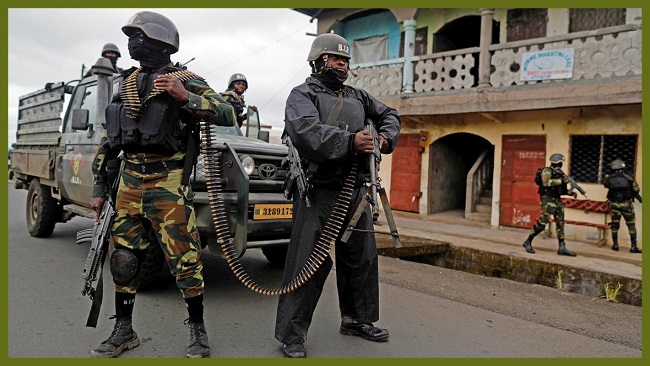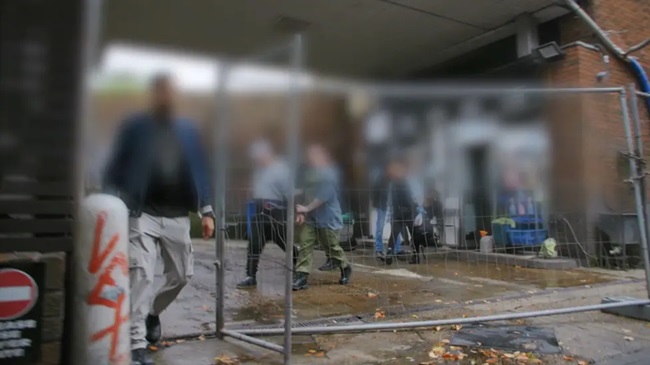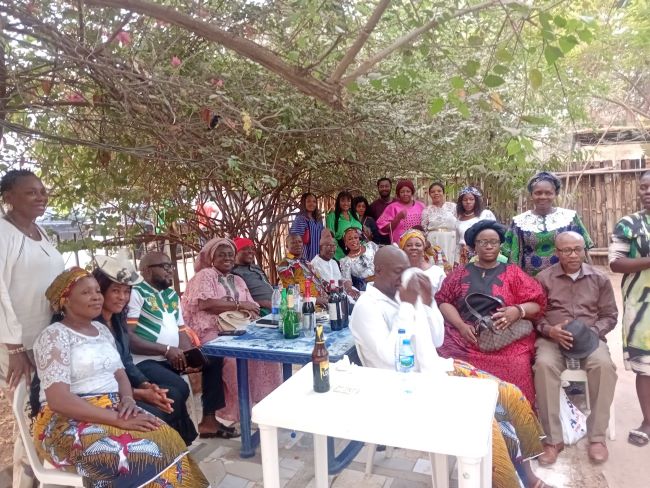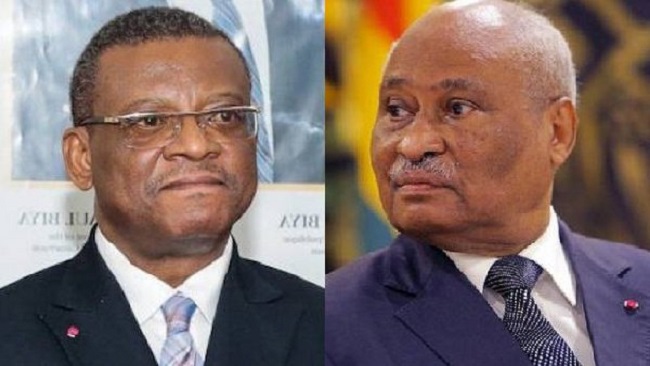12, February 2025
Ambazonia Crisis: Biya regime strengthens army footprint in Southwest 0
The Rapid Intervention Battalion (BIR) has strengthened its military footprint in the conflict-ridden Southwest region with the construction and inauguration of two new military camps on February 7. The new installations are located in Ekona, within the Muyuka district, and Ombe, in the Tiko district, both in Fako Division.
According to the army, these camps are part of efforts to bolster security in an area frequently targeted by armed separatist groups fighting against the Cameroonian military, which remains loyal to the central government in Yaoundé.
These new deployments add to previous reinforcements in the region. In November 2024, the BIR had already set up two camps in Nguti and Alou. Similarly, the elite force has been expanding its security presence in the Northwest region, which faces the same crisis. In May 2024, the BIR established a command post in Bui, a department known as a stronghold of separatist militias. The army has conducted several military offensives in this area, known as “Operation Bui Clean.”
The security crisis in Cameroon’s Southwest and Northwest regions began in 2017 when separatist armed groups launched attacks against defense and security forces, as well as civilians. The deployment of the BIR, the best-trained and best-equipped unit in the Cameroonian military, has so far helped to contain the insurgents.
According to United Nations data, the conflict in the country’s two Anglophone regions has resulted in nearly 6,000 deaths, displaced more than one million people internally, and forced over 35,000 refugees to flee to Nigeria.
Source: Sbbc


























13, February 2025
Fifty countries affected by USAID freeze, says WHO 0
Programmes to tackle HIV, polio, mpox and bird flu have been affected by the freeze on tens of billions of dollars of overseas aid from the US, says the head of the World Health Organization (WHO).
US President Donald Trump has taken steps to close the United States Agency for International Development (USAID), arguing that its spending is “totally unexplainable”.
However, WHO chief Dr Tedros Adhanom Ghebreyesus has urged the Trump administration to consider resuming aid funding until other solutions can be found.
HIV treatments and other services have been disrupted in 50 countries, he said at a briefing on Wednesday.
Speaking publicly for the first time about the freeze on US aid funding, at a virtual press conference in Geneva, Dr Tedros said: “There are actions that the US government is taking… which we’re concerned are having a serious impact on global health.”
In particular he pointed to the suspension of PEPFAR, the President’s Emergency Plan for Aids Relief, which he said had halted HIV treatment, testing and prevention services in 50 countries.
He added that a reprieve for life-saving services had not stopped the disruption.
“Clinics are shuttered and health workers have been put on leave,” Dr Tedros said.
Experts in global health have warned of the spread of disease, as well as delays to the development of vaccines and new treatments as a result of the cuts.
Trump has argued that USAID is “incompetent and corrupt”.
He recently announced huge cuts to the agency’s 10,000-strong workforce and the immediate suspension of almost all of its aid programmes.
The agency spends about $40bn (£32bn) – about 0.6% of total US yearly government spending – on humanitarian aid, much of which goes towards health programmes.
The vast majority of USAID money is spent in Asia, sub-Saharan Africa and Europe, where it is primarily used for humanitarian efforts in Ukraine.
Elon Musk, the tech billionaire who is working on the White House’s effort to shrink the size of the federal government, has previously claimed that the aid agency is “a criminal organisation”.
Neither Trump nor Musk have provided clear evidence to support their claims.
As well as the freeze on USAID, President Trump has taken steps to withdraw the United States from the WHO.
Under the Biden administration the US was the largest funder of the UN’s health agency and in 2023 it contributed almost one-fifth of the agency’s budget.
Dr Tedros said Trump’s decision was affecting collaboration between countries on global health threats. He also said the US had reduced its reporting of bird flu cases in humans.
The WHO says it has employed emergency measures similar to those used during the Covid pandemic to fill the gaps where there are shortages – in life-saving antiretroviral medication, for example, which is used to treat people living with HIV.
Meg Doherty, director of global HIV, hepatitis and sexually-transmitted infection (STI) programmes at the WHO, said efforts were being made to co-ordinate the sharing of vital supplies of medicines between countries.
However, she said a better, long-term solution was needed: “We have been seeking support from country to country for sharing, but this is a short-term approach.”
Source: BBC